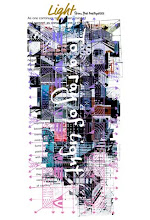When you exist as consciousness, there is no thought, so there is neither forward nor backward. Actions that appear positive often conceal fear or anxiety behind them. When acting as consciousness, there is no fear or anxiety.
The ego, always looking outside of the body, observes the words and actions of others well. However, it does not see its own inner state. Therefore, it tends to blame others for its failures, resulting in no learning or growth. To become no-mind means to look inside oneself. Those less bound by their ego are more likely to think that the cause may lie within themselves. In other words, they observe themselves closely, reflect, learn, and grow.
Resistance is one of the ego's reactions.
When you try to change someone's personality, they sense it. Then, their ego resists, becoming stubborn in order not to lose.
When you are bound by the ego, you become self-centered and even if you cause trouble for someone and are cautioned, you consider yourself the victim and do not admit your wrongdoing. Therefore, it is meaningless to fight with the other person's ego, and their ego will only persistently flee.
The ego hates to lose and will do whatever it takes not to admit defeat and to win.
The ego will perform acts that anyone would consider brutal and terrible. And those with strong egos justify it.
Justice doesn't matter to the ego. As long as it wins and gains, that's all that matters.
Those with strong egos have strong self-assertion, and discussions with them are unproductive. They speak from the perspective that they are the victims and the others are to blame, lacking a fair and objective viewpoint.
Consciousness acts upon humans and the world through intuition and events. That action is harmony. Within that consciousness, the ego's desire seeks to acquire in a small range, unaware of such action. That small desire can never win against the infinitely expanding consciousness that includes it.






0 コメント